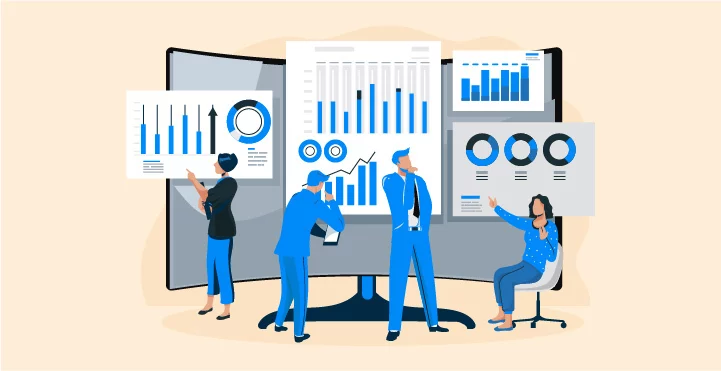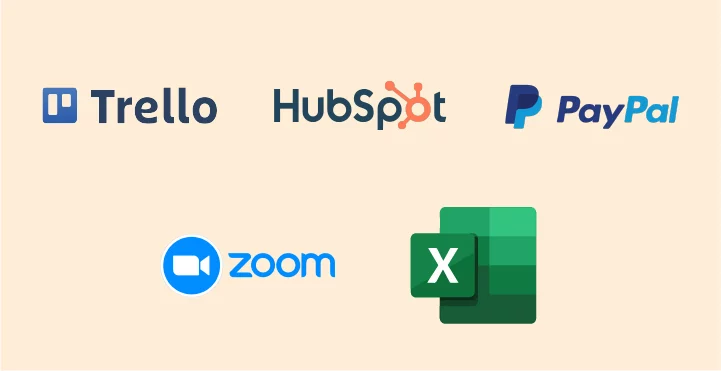

Every successful business starts small—but staying small is not the goal. If you are running a small business, you probably wear a lot of hats and make most of the decisions yourself. Growing from here can feel like a hard task, but it doesn’t have to be complicated. Because every business deserves progress and you can start seeing real progress with the right focus, a few smart tools, and a clear plan.
Every new business and startup, big or small, goes through the five stages of business growth.
Existence > Survival > Success > Takeoff > Maturity
These days, techs like CRM, membership management software, and automated marketing tools are not just for big companies; they are affordable and super helpful for small businesses, too. The thoughtful implementation of these tools can attract more customers, increase sales, and streamline your daily operations.
In this post, we’ll go over simple, proven tips that can help you grow your small business step by step.
You are great at the whole business ownership thing, but if you try to do everything on your own, you will limit yourself for potential growth.
There are two ways to create a system and get organized.
These tools are essential to improve customer relationships, organize day-to-day tasks, communicate with your team and customers, and review business operations. Moreover, they can automate some tasks so you can stay focused on your small business growth.

New customers are great, but retaining old customers helps you develop a brand and open a word-of-mouth marketing channel.
You can increase your customer retention by:
Looking for Small Business Event Ideas? Read Here.
Even the most successful business needs proper financial planning, and in the case of small businesses, this becomes extremely essential.
Start by keeping your business and personal finances separate. A lot of small business owners skip this step at first, which leads to headaches later. Open a dedicated business bank account and use it for everything business-related. This makes it way easier to track what is coming in and what is going out.
Also, be aware of your business’s cash flow. It doesn’t matter how much you’re selling if your money’s tied up and you can’t pay your bills on time. Know when your customers are paying you and when your expenses are due. If the timing’s off, talk to your suppliers or clients about adjusting payment terms.
Take a precautionary approach, and don’t spend money because you have it. Before you buy anything (a new tool, a piece of equipment, or software), ask yourself, “Will this actually help me make more money or run things more efficiently?” If the answer is no, hold off.
Small businesses need to set aside money for taxes from the start. Nothing ruins your year faster than realizing you owe a big chunk of money you didn’t plan for. Remember, being financially smart means being thoughtful, staying organized, and making decisions that keep your business healthy in the long run.
Important: If you lack financial knowledge, then it’s good to consult an accountant who will organize your finances and ensure all the financial statements and budgeting are accurate and up-to-date.
Related Article: How to Make Your Business Recession-Proof?

The global big data analytics market worth over $348 billion in 2024. Giant companies like Facebook and Amazon are utilizing it. In today’s age, it is the foundation of all the megatrends happening today, from social media to mobile phones.
One good thing about the data is that businesses of all sizes can use it effectively. You can employ tools to gain customer insights and reach them.
Some great tools for data analytics are
Small businesses must spend their marketing budget smartly, as marketing can easily become a money pit if you’re not careful.
Start by figuring out where your customers are coming from. If 70% of your new clients are finding you on Instagram, that’s where your focus should be. If people keep saying they heard about you through a referral, maybe it’s time to set up a referral program that rewards word-of-mouth.
The mistake many small businesses make is spreading themselves too thin—dabbling in five platforms at once, running ads “just because,” or chasing trends that don’t fit their brand. You don’t need to be everywhere. You just need to be where your ideal customer is already looking.
And while digital marketing gets a lot of attention, don’t ignore the basics. Sometimes, a well-timed email campaign to your existing customers or a collaboration with another local business can bring better results than paid ads.
Just because you open a business does not mean you are going to start making money immediately. There is nothing like overnight success. It will take time to attract new prospects and what you offer, so work hard and stay focused on achieving your goals.
Many small businesses that achieve success usually don’t see any profits for a few years, and you will have to rely on savings, borrowed money, or bank financing to run your business. Moreover, if the business is not turning a profit after a reasonable period, it’s worth looking into things like:
The answers will also give you an idea of the feasibility of the business.
A consistent revenue stream is especially important for small businesses. They need a consistent cash flow to keep them afloat and take practical steps for business growth. One of the models for a steady revenue stream for small businesses is the Membership and Subscription Model.
Check out the Best Subscription Management Software for Small Business
You can implement this practical model for service-based businesses like aesthetic clinics, gyms, yoga schools, vet clinics, and more. Membership and subscription models develop customer and brand loyalty and help build a customer base, reduce acquisition costs, and strengthen customer relationships.
Best Membership Management Software
Try MemberPoint—the all-in-one platform designed for gyms, wellness centers, aesthetic clinics, and service-based businesses to Simplify membership management, enhance customer loyalty, and scale your business with ease.

In the competitive small business world, implementing the right tech tools can be the difference between a successful and merely surviving business. This approach can help you grow faster and work more efficiently. The tech tools can automate repetitive tasks, improve customer experiences, and boost marketing efforts.
Small business owners will need the following technologies for efficient business operations.
So, keep up with new technology in your industry. Use the latest software and explore new tech to stay ahead of the competitors and make your business more appealing to tech-savvy customers.
The 13 Best Small Business Management Software Solutions

Buyers are investing not just in your product or services but in your team. Your products and services are only as good as those working in it. So, whether hiring an employee, intern, contractor, or freelancer, it will quickly become clear that having the right people in place will set your business for expansion and success.
Hire good people and keep them happy. Create a positive work environment, pay fair salaries, and provide opportunities to learn and grow. A strong and motivated team will help your business grow and achieve its goals.
If you have hired new people, remember that it will come with an adjustment period. New staff will require time, but establishing a strong culture will keep them devoted, boosting the next big jump.
Scalability is the ability to grow and adapt to increased demand without significant infrastructure changes or sacrificing efficiency. This enables businesses to handle more customers and revenue streams. Scalability is an essential factor in a company’s success. Key aspects of a scalable business are:
A scalable business model serves as an engine of growth for your company. A well-structured system will position your business to handle the business growth well.
A small business needs a mighty business plan that should have all the essential operational and financial goals for a successful venture. In addition, a proper backup plan should be in place. As the business grows and becomes complex, the backup plan allows you to adjust to difficult situations quickly.
So, have a plan for emergencies and unforeseen circumstances so you can deal with bumps in the road.
When you are running a small business, everyone seems to have an opinion—friends, family, social media, even strangers. It’s easy to second-guess yourself when things get tough, or you constantly compare your business to others. But remember, no one knows your business like you do.
You are the one who has put in the work. You have seen what is working and what isn’t, and you have made the hard calls to get this far. Trust that.
It doesn’t mean you should ignore advice or refuse to learn, but at the end of the day, you have got to trust your gut. You started this for a reason—don’t forget why.
Small businesses don’t grow instantly and need smart, steady moves that fit the business. So, focus on building strong systems, knowing your numbers, and understanding your customers — that all matters the most.
Don’t be afraid to try new things, but make sure they make sense for where you are and where you want to go. Surround yourself with a team you trust, count on tools that make your life easier, and always keep your long-term goals in sight.
And most importantly? Back yourself. You have got more know-how than you probably give yourself credit for. Keep going!

Your all-in-one destination for memberships, subscriptions, and installment plans.
16755 Von Karman Avenue #200, Irvine CA 92606
hello@memberpoint.io